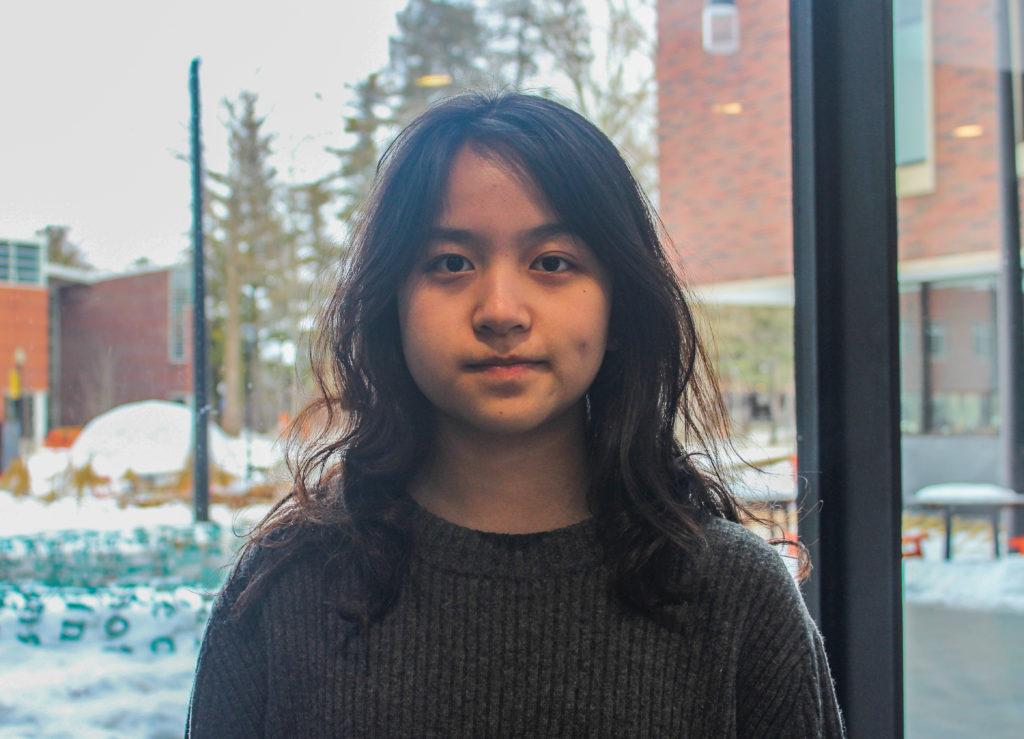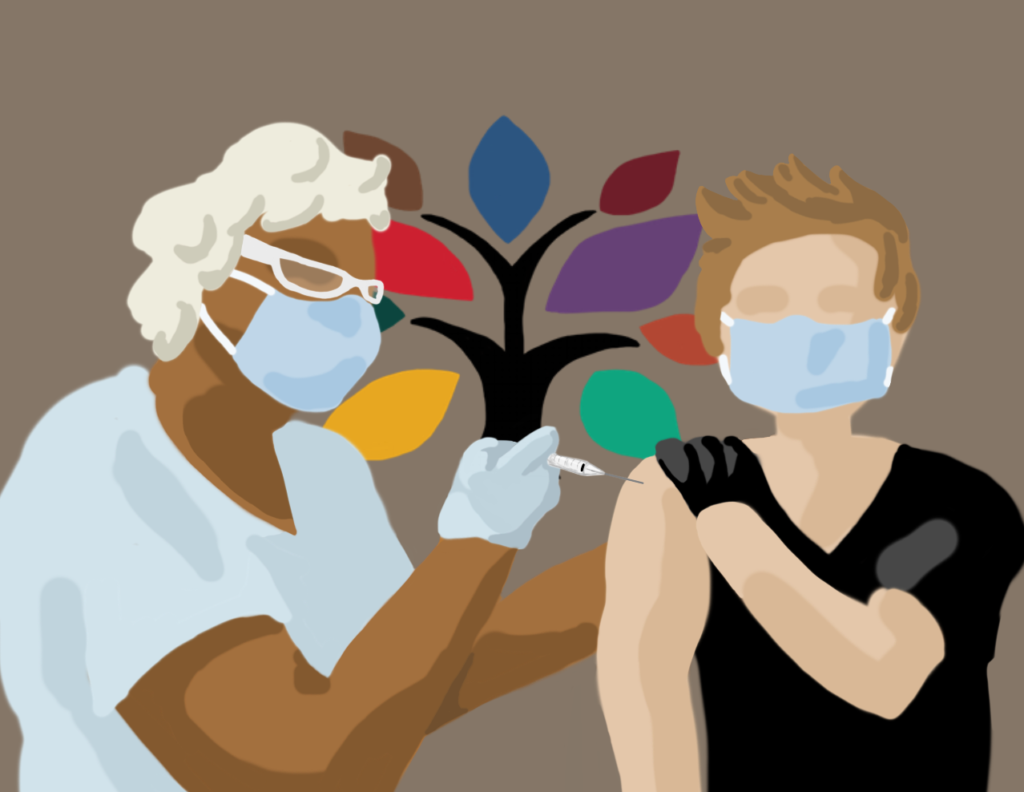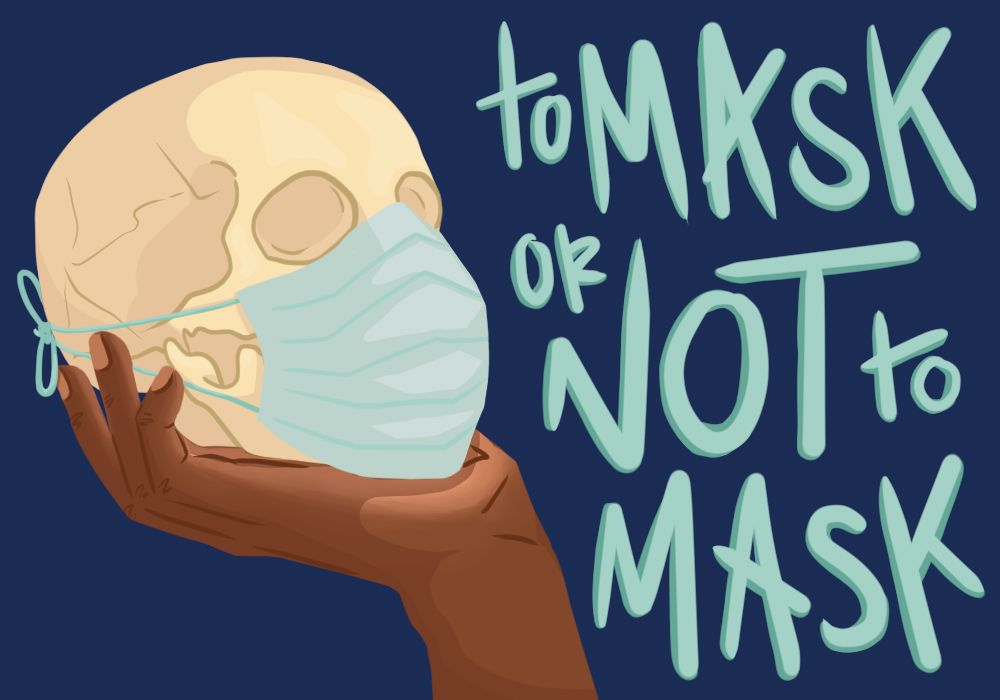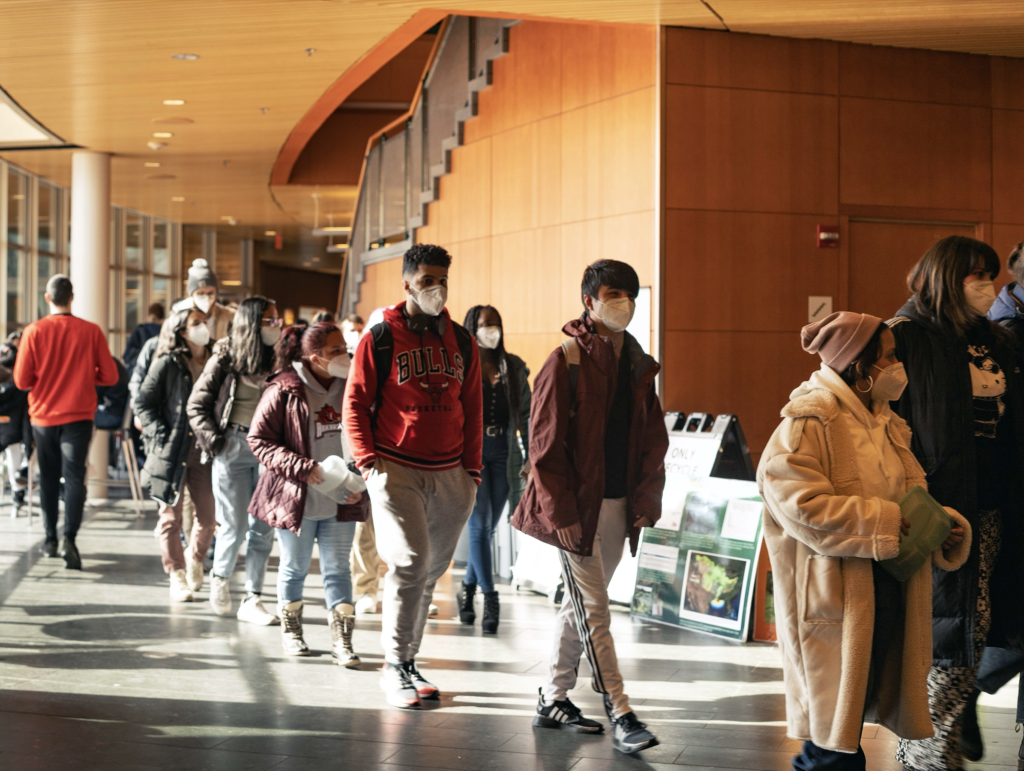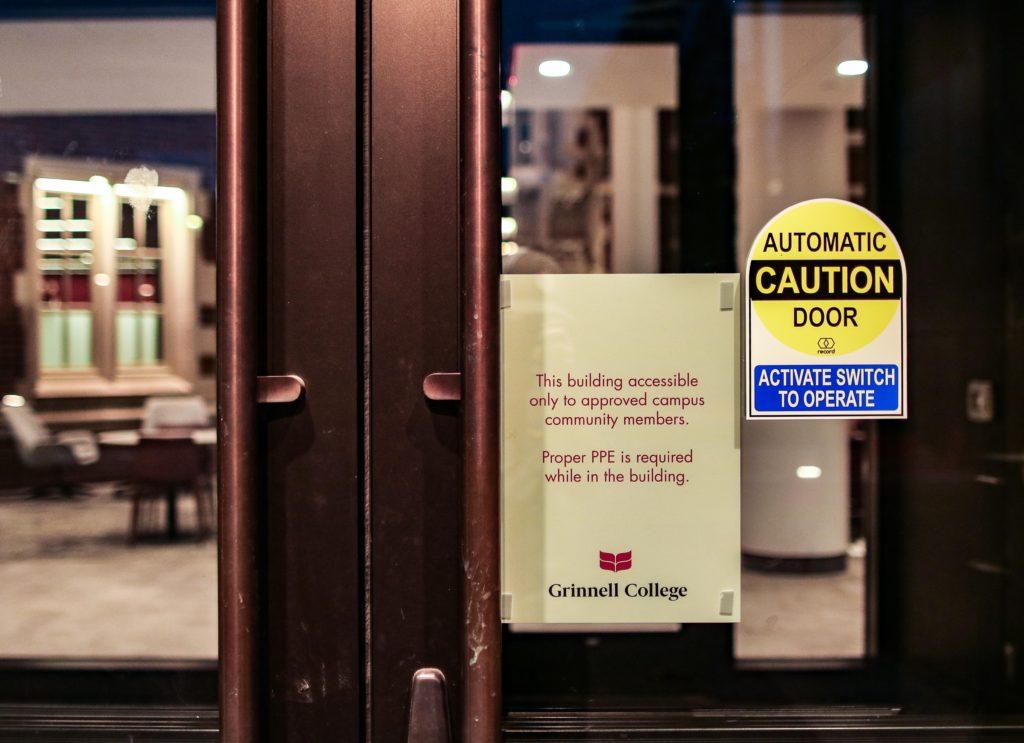On Thursday, Jan. 30, a group of prospective students from China visiting Grinnell College had their visit cut short by staff from Admissions and Student Health and Wellness due to concerns about the 2019-nCoV coronavirus.
The group, from Shenyang, China, was on a United States tour, a recurring trip that introduces students to over 20 colleges across the country within a 2-week period. Grinnell has been a regular stop for their visits, and Jon Edwards, senior associate director of admissions, has hosted them before.
“Their tour leader contacted me directly and we made arrangements for the visit,” wrote Jon Edwards in an emails to The S&B. “I was expecting them that day and had been assigned to present our standard information session from 9 to 10 a.m. so that I could tailor part of the session to their needs as potential international applicants. They hadn’t officially reconfirmed, but that doesn’t always happen. They arrived on time and were greeted as usual. I spent the hour presenting Grinnell to the group and fielding their questions.”
Edwards then learned that the group had only been in the country for 12 days, with the incubation period of the coronavirus being 14 days. Deb Shill, Director of Health Services, then began to conduct a risk assessment, taking the time to meet with each of the students to learn if they had travelled to Wuhan, the Chinese city identified as the origin of the recent coronavirus outbreak.
“They were very understanding and in fact, I was able to help answer some of their questions regarding what symptoms to watch for should they fall ill, what the incubation period meant. … All of the students and teachers traveling with this group screened negative,” wrote Shill in an email to The S&B. In addition, the group had been encountering similar screening checks from the other colleges on their tour, Shill wrote.
“Knowing this,” wrote Shill, “I called ahead to the health centers located at Macalester College, St. Olaf College and Carleton College in Minnesota, to make them aware of their visit here with us and to let them know we had performed this risk assessment to help avoid them having to be screened again. These college health professionals were very appreciative of this partnership.”
The 2019-nCoV coronavirus — named for its protein spikes’ likeness to a crown, or corona — outbreak began in mid-December, originating in Wuhan’s Huanan Seafood Market. The illness appeared right before the lunar new year, during which a high number of people travel to celebrate the holidays. Symptoms range from those of the common cold to pneumonia, including coughing, fever and other flu-like symptoms.
“As health professionals, we are asked to follow the Centers for Disease Control’s (CDC) recommendations when it comes to this world health situation,” wrote Shill. In collaboration with the CDC, we are also consulting with the Iowa Department of Public Health as well as the American College Health Association to guide our steps moving forward.”
Shill also encourages students to reach out to SHAW in person or via phone at (641) 269-3230 if they feel ill, where they can be treated by SHAW staff in a number of ways, including but not limited to free influenza testing, self-care and sick meal kits and free over the counter medications.
On Friday, Jan. 31, the President’s office sent an email with the subject line “Campus Visit by Prospective Students from China” to all students on campus informing them of the incident. College president Raynard Kington stated that in an effort to curtail misinformation, the push to get the facts out as quickly as possible lead to a lack of cultural awareness in the memo.
A major factor that played into the hasty notification had to do with false rumors that had surfaced within the community, from speculations of misconduct to accusations of a coronavirus case cropping up on campus, culminating in a call from KCCI, the local CBS affiliate. History of similar situations, such as a flu epidemic at Grinnell in 1957, has also influenced the actions administrators took.
“There’s a huge amount of uncertainty. … People immediately become very fearful,” said Kington. “And there’s often this gap between final guidelines that come out to institutions about what to do, and the recognition that there’s a problem, and we’re in that window. … I think we have an obligation as community members to act responsibly as an institution and that means taking reasonable steps to safeguard the health of our students, our community and our visitors. Our job is to be a source of credible information and to reassure people that we’re going to do what is being recommended by the experts.”
Many students had negative reactions to how the College handled the visit of the students from China.
“They’re not the people who are experiencing this, so they don’t know how to hurt,” said Kexin Huang ’22.
“What the Chinese students were mad about was the fact that they used the word ‘unannounced’ in their statement. They’re saying that they just came here out of nowhere,” said Huang, “And, of course that would cause panic. They’re adding to the discrimination against Chinese people. Imagine having this group of students, potentially carrying a virus, and it just comes out of nowhere. That would just be bad.”
Huang, who is from Wuhan, finds that the epidemic hits close to home in more ways than one. With her family still in Wuhan, she says she can’t help but compulsively check the news for more updates, adding to the stress she already feels from schoolwork. Even with her family reassuring her that they will be fine, she worries.
“I saw this article about an old woman,” said Huang. “She wasn’t able to be helped. … She had died, and I saw that the address was 20 minutes away from my house.”
News of the virus has also come with stories of xenophobia and discrimination.
“At first, it was everyone in China attacking Wuhan people. And now, it’s everyone in the world attacking Chinese people,” said Huang. “It’s bad, but it’s also a normal thing to think about because if you’re scared for your life, then you can’t be rational. And irrational people can’t come down and think about things in a way that they can stand in other people’s shoes. Because they just can’t.”
Shuhan Yi ’22, who is also from China, shared this insight. “Because it’s infectious, I don’t think it’s pure discrimination,” said Yi. “It, to some degree, arouses a discriminating kind of opinion. Because there’s kind of an excuse. But, that’s also a very ambiguous point because we don’t know if people are discriminating against us, or if they’re just being cautious.”
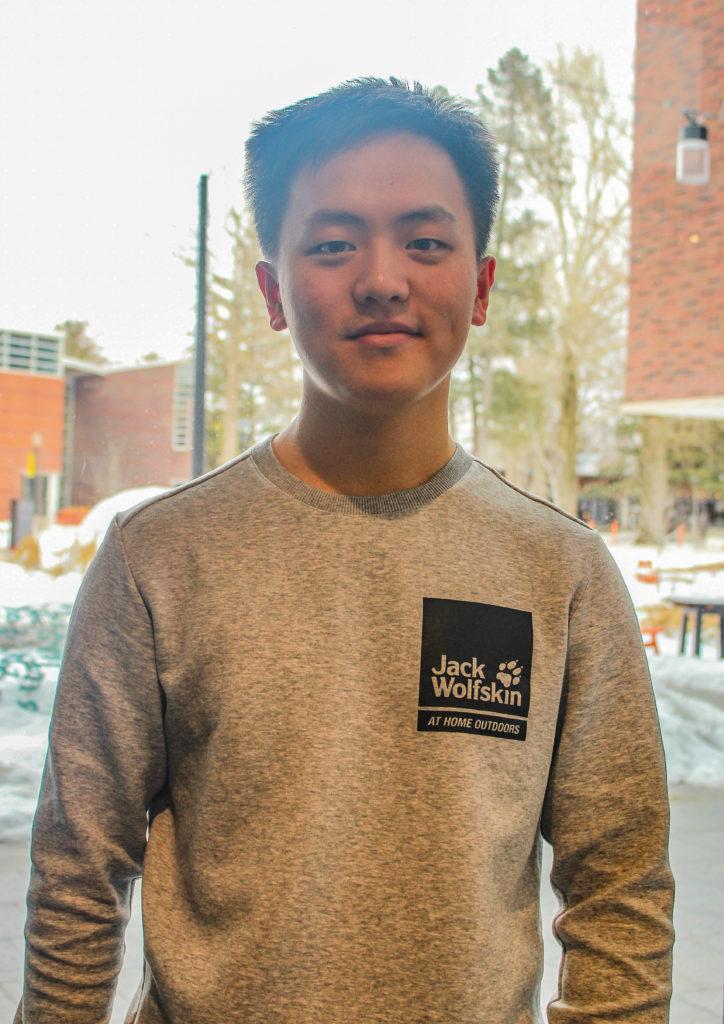
In Grinnell, there has been a show of solidarity on campus for those whose lives have been affected by the coronavirus. The Office of International Student Affairs (OISA), run by Karen Edwards, is working closely with the President of the Chinese Student Association, Huandong Chang ’22 to gain student input.
“Student concerns have been broad ranging. Some had questions or offered opinions about campus messaging or policies, including the admissions visit. Some have expressed personal worries about friends or family at home,” wrote Edwards in an email to The S&B. “Some are concerned about how the U.S. entry ban may impact spring break travel plans or families who hope to attend commencement. We are hopeful that President Trump’s China travel ban will be short-lived, but that is yet to be determined. … It is so important that we separate the geographic location of this virus from the people who come from, travel to or through, and/or have friends and family impacted by it.”
To raise awareness and garner support for those in Wuhan, stickers have been created for both students and faculty to display, a tribute to those currently suffering.
“I had a conversation with my friend [at a different college],” said Huang. “She’s like the most calm and rational person I know in my life, but she’s been pretty angry about this stuff, about people attacking Wuhan people … if that could happen, that means everyone could get irrational because of this. It’s perfectly reasonable to be scared, but if you’re experiencing this fear, that means we’re experiencing it more. Just be considerate of other people.”















































